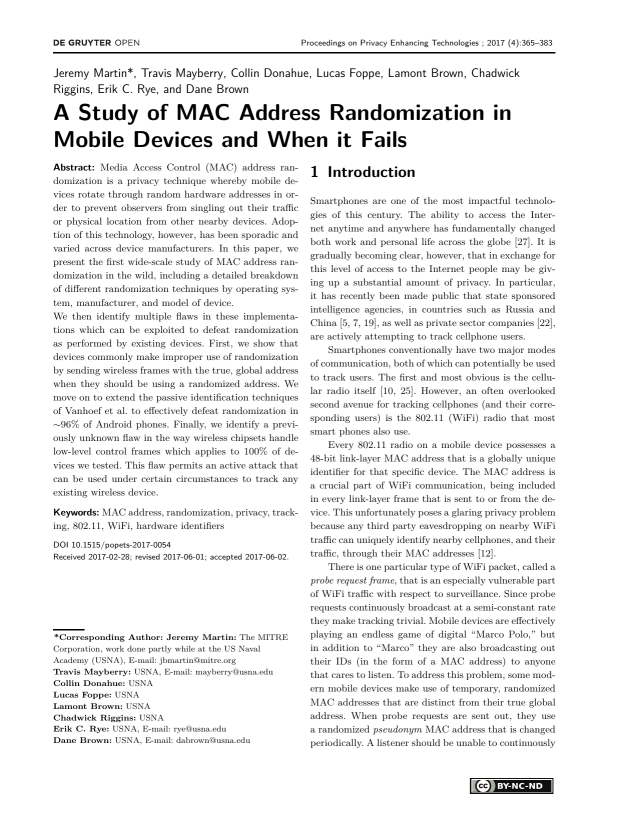A Study of MAC Address Randomization in Mobile Devices and When it Fails
Authors: Jeremy Martin (The MITRE Corporation, work done partly while at the US Naval Academy (USNA)), Travis Mayberry (USNA), Collin Donahue (USNA), Lucas Foppe (USNA), Lamont Brown (USNA), Chadwick Riggins (USNA), Erik C. Rye (USNA), Dane Brown (USNA)
Volume: 2017
Issue: 4
Pages: 365–383
DOI: https://doi.org/10.1515/popets-2017-0054
Abstract: Media Access Control (MAC) address randomization is a privacy technique whereby mobile devices rotate through random hardware addresses in order to prevent observers from singling out their traffic or physical location from other nearby devices. Adoption of this technology, however, has been sporadic and varied across device manufacturers. In this paper, we present the first wide-scale study of MAC address randomization in the wild, including a detailed breakdown of different randomization techniques by operating system, manufacturer, and model of device. We then identify multiple flaws in these implementations which can be exploited to defeat randomization as performed by existing devices. First, we show that devices commonly make improper use of randomization by sending wireless frames with the true, global address when they should be using a randomized address. We move on to extend the passive identification techniques of Vanhoef et al. to effectively defeat randomization in ∼96% of Android phones. Finally, we identify a previously unknown flaw in the way wireless chipsets handle low-level control frames which applies to 100% of devices we tested. This flaw permits an active attack that can be used under certain circumstances to track any existing wireless device.
Keywords: MAC address, randomization, privacy, tracking, 802.11, WiFi, hardware identifiers
Copyright in PoPETs articles are held by their authors. This article is published under a Creative Commons Attribution-NonCommercial-NoDerivs 3.0 license.

